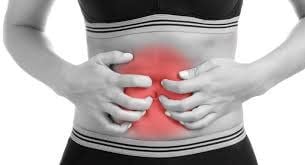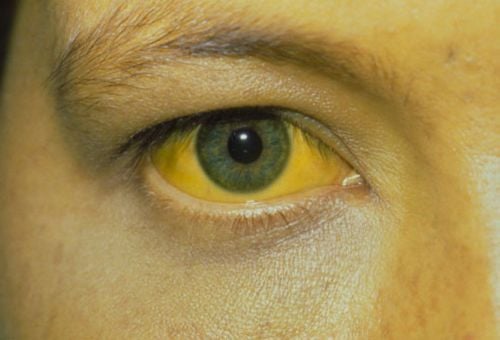This is an automatically translated article.
Posted by Master, Doctor Mai Vien Phuong - Department of Examination & Internal Medicine - Vinmec Central Park International General Hospital.
Constipation is generally defined as infrequent bowel movements, with many people having fewer than three bowel movements a week. On the other hand, nausea is best described as a feeling of discomfort or a hangover in the stomach. Although these conditions can occur individually, they sometimes occur together as symptoms of a specific underlying problem.
1. Reasons You Might Be Constipated and Nausea
If you have acute or chronic constipation with nausea, possible causes include:
1.1. Irritable bowel syndrome
Irritable bowel syndrome (IBS) is a condition that affects the large intestine. It can cause problems like stomach pain, bloating, gas, nausea, and constipation. Some people with IBS also have intermittent diarrhea.
IBS is a chronic condition, but it does not damage the large intestine or cause colorectal cancer.
The exact cause of IBS is still unknown. It can be caused by an imbalance of beneficial bacteria in the gut, inflammation in the gut, or abnormalities with the nerves in the digestive system. Diseases caused by bacteria often cause diarrhea. It may also increase your risk of developing IBS.

1.2. Dehydration
Thirst is not the only symptom of dehydration. It can also cause digestive problems.
Dehydration is when your body doesn't get the fluids it needs to function properly.
In the digestive tract, a lack of fluid can cause dry, hard stools that are difficult to pass. As your body loses fluids, you may experience other symptoms, such as nausea, vomiting, dizziness, and confusion.
1.3. Medicine
If you are constipated and nauseous and you have recently started a new medication, medication may be the culprit.
Drug side effects are common, with some medications causing constipation, diarrhea, as well as stomach pain and nausea. Side effects sometimes improve after a few days or weeks.
1.4. Unbalanced diet
Eating too much red meat and not enough fruits and vegetables can also cause constipation, due to its low fiber content.
Remember that some people have difficulty digesting certain meats, such as beef. Poor digestion can also cause stomach problems, like nausea, gas, or bloating.
1.5. Pregnant
Pregnancy is also the cause of many digestive problems. Some women experience constipation due to an increase in the hormone progesterone. This increase can slow bowel movements, leading to fewer bowel movements. Pressure on your intestines while in the womb can also make it difficult for you to have a bowel movement.
Some women also experience morning sickness during pregnancy, which can include nausea and vomiting. Morning sickness may only occur during the first trimester. For some women, it can last for an entire pregnancy.

1.6. Anxiety and depression
Anxiety and depression can also cause digestive upset. When you feel anxious, your body releases hormones and other stress chemicals. These substances can affect your digestive tract, causing symptoms like nausea and constipation.
Your digestive system can also slow down during times of stress or anxiety. As a result, waste cannot quickly pass through the intestines. Feelings of anxiety and nervousness can also cause a feeling of nausea or a hangover in the stomach.
Depression can cause constipation for many reasons. People with depression may stay in bed and reduce their physical activity, which in turn can lead to constipation.
People with depression can also change their eating habits. They may start to eat a lot of foods high in sugar and fat or not eat much at all. Such lifestyle and dietary changes can contribute to constipation.
1.7. Lactose intolerance
Lactose intolerance is a condition in which a person has difficulty digesting the sugar in milk. Most people experience diarrhea with this condition, but others experience constipation, nausea, gas, and bloating.
Problem foods include milk, ice cream, cheese, sour cream and any other item with dairy ingredients.
1.8. Colon cancer
Colon cancer occurs when cancerous cells or a mass develops in the intestine. A mass can cause a blockage, causing constipation in some people. Other symptoms of colon cancer include bloody stools, unexplained weight loss, nausea, and stomach pain.
2. Treatment of constipation and nausea
If you have constipation and nausea, identifying the underlying problem can help you determine the right treatment.
If you have irritable bowel syndrome, identifying foods that trigger your symptoms can improve both constipation and nausea.
IBS triggers vary from person to person. Too much fiber can cause symptoms in some people, while others can develop symptoms after consuming chocolate, caffeine, alcohol, carbonated drinks, fried foods, or after eating a lot. meal.
If you are lactose intolerant, eliminating dairy from your diet can prevent nausea and constipation. Use milk substitutes instead. These include almond or cashew milk, cashew ice cream or non-dairy cheeses, yogurt, and sour cream.
If you are pregnant, keep a food diary to determine which foods cause nausea and then avoid these foods.
You can also ask your doctor about over-the-counter and prescription medications to improve morning sickness. These may include vitamin B6, doxylamine, antiemetics that prevent vomiting.
OTHER TIPS TO HELP CONSUMPTION AND VOICE
Eat a fiber supplement . Increase your intake of fruits and vegetables. Take a laxative or stool softener as directed. Take anti-nausea medication. Drink ginger tea to soothe your stomach. Eat bland, low-fat foods, such as crackers, bread, and toast. Don't ignore the urge to have a bowel movement.

3. How to Prevent Constipation and Nausea
Simple adjustments not only treat constipation and nausea but also prevent it from recurring.
Exercise: Move for at least 30 minutes three to five times a week to stimulate regular bowel contractions. More fluids: Increase water, juice, and tea intake. Reduce stress and anxiety: Practice deep breathing exercises. You may also want to talk to your doctor about taking an anti-anxiety medication. Reduce or eliminate fried and fatty foods: Avoid eating too much fat and oil as these can worsen digestive symptoms. Eat plenty of fresh fruits and vegetables: Eat fruits and vegetables or take a fiber supplement. According to the Mayo Clinic, adults need between 21 and 38 grams of fiber per day. Take a lactase enzyme before consuming milk: Uses lactase enzyme to help the body digest the sugar in milk. Switching medications: Ask your doctor about an alternative medicine or adjust your dosage to help relieve symptoms. Take probiotics: Taking a probiotic supplement helps restore the good bacteria in your gut and may improve constipation and nausea. Don't skip meals: Being on an empty stomach can cause nausea. Avoid certain foods: Do not eat foods that are difficult to digest. Nausea and constipation that occur together can be intolerable. With lifestyle changes, home remedies, and medication, you can improve symptoms of both conditions and resolve digestive discomfort.
In case many ways to cure constipation have been applied but it is not effective, the patient should go to the hospital to be examined and effectively treated by a specialist. Currently, Vinmec International General Hospital is one of the leading prestigious hospitals in the country, trusted by a large number of patients for medical examination and treatment. Not only the physical system, modern equipment: 6 ultrasound rooms, 4 DR X-ray rooms (1 full-axis machine, 1 light machine, 1 general machine and 1 mammography machine) , 2 DR portable X-ray machines, 2 multi-row CT scanner rooms (1 128 rows and 1 16 arrays), 2 Magnetic resonance imaging rooms (1 3 Tesla and 1 1.5 Tesla), 1 room for 2 levels of interventional angiography and 1 room to measure bone mineral density....
Vinmec is also a place to gather a team of experienced doctors and doctors who will greatly assist in diagnosis and development. early detection of abnormal signs of the patient's body. In particular, with a space designed according to 5-star hotel standards, Vinmec ensures to bring the patient the most comfort, friendliness and peace of mind.
Please dial HOTLINE for more information or register for an appointment HERE. Download MyVinmec app to make appointments faster and to manage your bookings easily.
Articles referenced sources: cancercenter.com, my.clevelandclinic.org, niddk.nih.gov, mayoclinic.org














